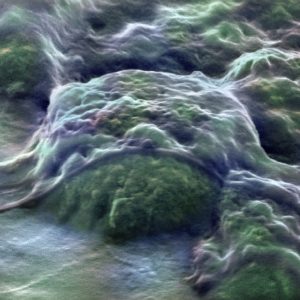Genetic Engineering of Mammalian Stem Cells (postponed)
15–27 March 2020
Wellcome Genome Campus, UK
Practical training in the genetic manipulation of mammalian stem cells, focusing on human iPS cells
Summary
Due to the ongoing situation with Covid-19, this course has been postponed to 2021. We will contact attendees with new arrangements as soon as possible.
This laboratory-based training course will provide a comprehensive overview of the theory and practical laboratory skills required for the genetic manipulation of mammalian stem cells, focusing on human iPS cells. Genome informatics, vector construction and CRISPR-based editing strategies will be covered in interactive practicals and demonstrations, with further discussion and lectures by international experts.
Laboratory work includes the use of CRISPR-Cas9 systems for advanced genome engineering and genetic screens, the construction of gene targeting vectors, and the culture, transfection and derivation of human iPS cells.
An emphasis will be placed on the integrated planning, design and successful experimental execution of gene targeting projects, allowing participants to gain the skills necessary to design, construct and target their own genes of interest.
Programme
The programme will include lectures and practical laboratory/computer-based sessions covering the following topics:
1. Informatics
The visualization and interpretation of gene models will be presented focusing on the practical design of gene targeting strategies, including CRISPR gRNA selection and the design of oligonucleotide and other HDR substrates. Students will also have the opportunity to develop their own CRISPR-mediated gene targeting designs using web-based tools and learn how to exploit public genomic data resources.
2. CRISPR Gene Targeting Vector Construction
Students will learn to apply recombineering and synthetic biology techniques to gene targeting vector construction and engage in the design, assembly and analysis of vectors for CRISPR-assisted gene targeting applications; including protein tagging approaches.
3. Stem Cell Culture/Genome Editing
Genome editing experiments will be performed where participants will learn feeder-free culture of human iPS cells and transfection techniques for protein-based delivery of Cas9 to engineer a variety of useful alleles, including knockouts, protein tagging and the introduction of SNPs using HDR and base-editing methods. Cell manipulation techniques including picking, expansion, archiving and genotyping of iPS cell clones will also be covered.
4. Genome-wide functional genomics screens
Practical application of the CRISPR-based systems (including CRISPRa/i) needed to undertake in vitro genetic screens will also be explored. This includes both the design and implementation of genome-wide screens, with bioinformatic analysis of next-generation sequencing data.
5. iPS Cell Generation
Participants will be introduced to protocols for the derivation of high quality iPSCs, using non-integrative reprogramming techniques, required for the characterisation, differentiation and genome editing of human iPSCs.
Learning Outcomes
After attending this course, participants should be able to:
- Assess targeting strategies within a genomic context, identifying suitable targets and evaluate CRISPR gRNAs.
- Design and build vectors for CRISPR-assisted gene targeting using a variety of synthetic biology approaches.
- Apply cellular reprogramming methods to derive induced pluripotent stem cells for human and mouse.
- Undertake genome editing of human iPS cells, including manipulation of cells under culture conditions, applying different transfection techniques.
- Apply knowledge of CRISPR based genetic screening approaches for both pooled and arrayed formats
Instructors and speakers
Course Instructors

Andrew Bassett
Wellcome Sanger Institute, UK
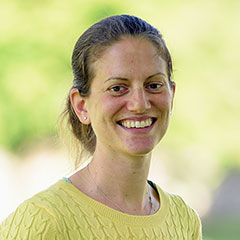
Meg Byrne
Wellcome Sanger Institute, UK

Thomas Burgold
Wellcome Sanger Institute, UK
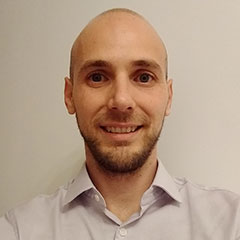
Giovanni Ciotta
AstraZeneca, UK
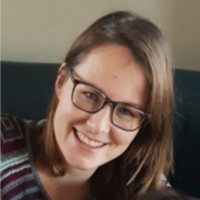
An-Sofie Lenaerts
University of Helsinki, Finland
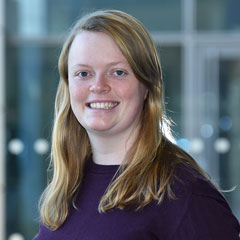
Kathleen Long
Wellcome Sanger Institute, UK

Jane Loveland
EMBL-EBI, UK

Marcello Maresca
AstraZeneca, Sweden
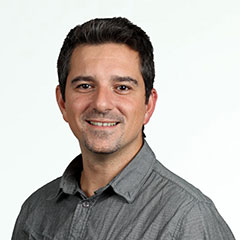
Emmanouil Metzakopian
UK Dementia Research Institute
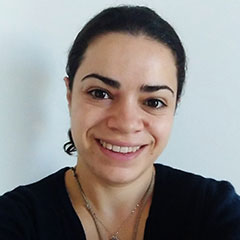
Sofia Pavlou
University of Cambridge, UK

Alexis Komor
University of California San Diego, USA
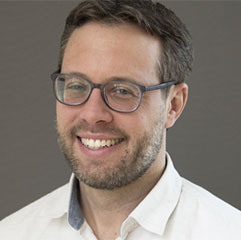
John Doench
Broad Institute, USA
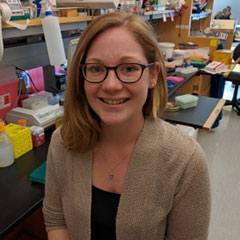
Britt Adamson
Princeton University, USA

Kevin Eggan
Harvard Stem Cell Institute, USA
How to apply
Prerequisites
Applicants should be postdoctoral scientists or advanced PhD students actively engaged in or soon to commence relevant research. The course is also suitable for facility managers and principal investigators wishing to bring the latest genetic modification technologies into their facilities or groups.
How to Apply
Please click the Apply button above to begin the online application process. Places are limited and will be awarded on merit. If you have any problems with the online application process, please contact us.
Please note: Applications must be supported by a recommendation from a scientific or clinical sponsor (e.g. supervisor, line manager or head of department). A request for a supporting statement will be sent to your nominated sponsor automatically during the application process. Applicants must ensure that their sponsor provides this supporting statement by the application deadline. Applications without a supporting statement cannot be considered.
Travel visas
Successful applicants will be provided with a support letter for their visa application, if required.
Please visit the following websites for further information on visiting the UK:
Cost
| Cost | Accommodation / meals | |
| *Course fee | £1950 | This is a residential course and the fee includes all accommodation and meals for the duration of the course. |
*The course fee is subsidised by Wellcome Genome Campus Advanced Courses and Scientific Conferences and applies to non-commercial applicants. Please contact us for the commercial fee.
Bursaries
Limited bursaries are available (up to 50% reduction on the course fee) and are awarded on merit. If you would like to apply for a bursary, please complete the bursary section of the online application form.
Where there are many bursary applications, the selection committee may issue smaller amounts.
Bursaries can be applied for as part of the course application form. Applicants will be notified of a bursary award along with their place on the course, usually within one month of the application deadline. The decision of the selection committee is final.
Please note that both the applicant and sponsor are required to provide a justification for the bursary as part of the application.
Additional funding opportunities
Visit our support page for additional financial support currently available.
Accommodation services phishing scam – please be vigilant. More information.
Testimonials
Feedback from the 2019 course:
“It was a pleasure to attend the course, I’ve learned a lot which will be from benefit for my projects. The instructors were always helpful and open for discussion. I enjoyed that course participants were diverse and from different scientific backgrounds.”
“This was a fantastic course and everyone has been incredibly nice and extremely helpful. It is by far the best training i have ever received.”
“From every seminar I could learn something, I have a book of notes and I will need some time to process all the learnt information. I was astonished by the level of the speakers, and their expertise was very broad.”
“It was great that the course covered a wide-range of genome editing manipulations methods, including more recent one such as base-editing. I found particularly useful all the information on genome-wide CRISPR screening (comparing different CRISPR pooled libraries) and the details on how to design good guides for CRISPRa. Discussions with all the instructors on therapeutics and functional genomics were a great addition.”
“The course not only provided us with a great set of skills to pursue genome editing in mammalian cells, it also covered fantastic discussions with all the instructors and invited speakers.”
